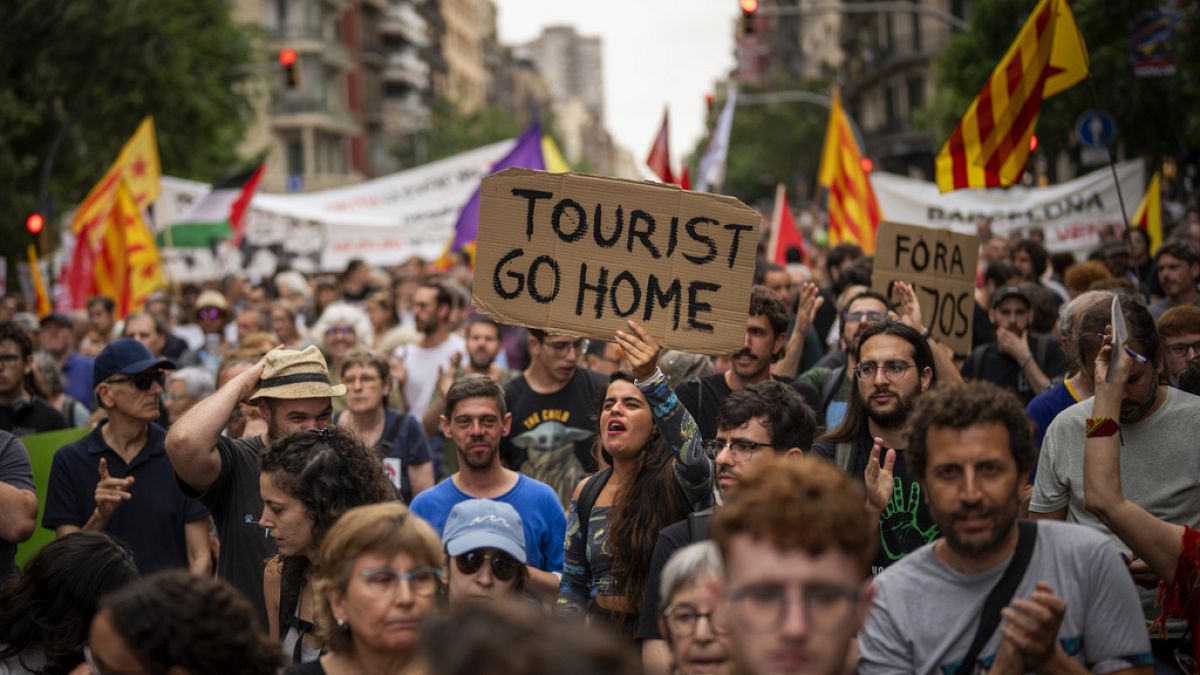The city of Barcelona is facing a major challenge as the mayor has announced plans to eliminate the city’s 10,000 tourist apartment licenses within the next five years. This decision comes in the wake of protests against mass tourism in the city, with concerns raised about the impact it has on housing prices and local services. Despite these concerns, many in the tourism sector believe that eliminating these licenses will only lead to more illegal apartments and a potential loss of 40% of the city’s tourism.
The Barcelona Association of Tourist Apartments (APARTUR) has pointed out that tourist apartments account for less than 1% of the city’s housing, and warn that restricting licenses could have far-reaching consequences beyond just the hospitality industry. Local businesses rely heavily on tourism, with many reporting that up to 50% of their clientele comes from tourists. Visitors to the city also express their support for tourism, noting that it brings life to the city and supports local merchants.
The issue of over-tourism is not unique to Barcelona, with other popular destinations in Spain also feeling the strain. In Mallorca, thousands of people recently demonstrated against uncontrolled tourist numbers, citing negative impacts on wages, quality of life, and housing prices. Similar demonstrations have taken place in Málaga and the Canary Islands, with residents expressing frustration at the impact of mass tourism on their communities.
In response to these challenges, many European countries have introduced tourist taxes and other measures to manage visitor numbers. Venice has banned cruise ships from its canal system, Amsterdam has attempted to deter drunken tourists, and Athens is conducting a study to set limits on tourism and short-term rentals.
Despite the global nature of the over-tourism issue, it appears that Spain is at the forefront of grassroots efforts to address the problem. With Barcelona leading the way in eliminating tourist apartment licenses, the debate over the impact of tourism on local communities is likely to continue. Critics argue that restricting licenses could lead to a rise in illegal rentals and a decline in tourism, while supporters believe that it is necessary to protect the city’s housing market and preserve the quality of life for residents.











